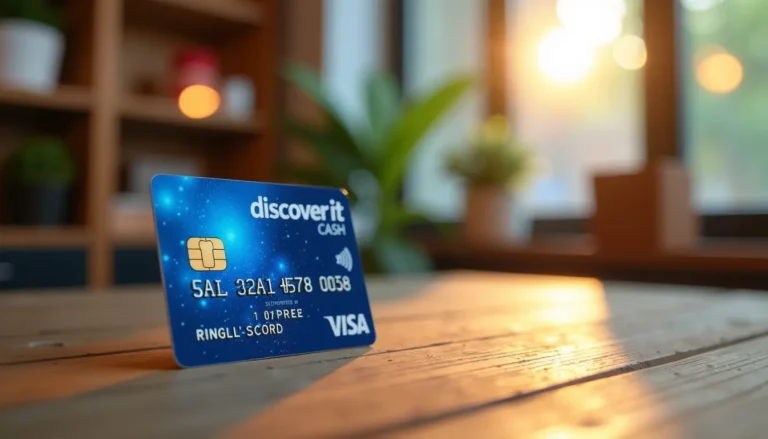In today’s digital world, mastering the art of digital marketing is not just beneficial; it’s essential for the growth and survival of any business. As the landscape of online commerce evolves, companies that embrace innovative digital marketing strategies are the ones that thrive. Are you prepared to take your brand to the next level? With so many available techniques, it can be overwhelming to choose the right path. But don’t worry; this article will guide you through proven strategies that can enhance your brand’s online presence and significantly drive your sales. By understanding what makes digital marketing effective, you can create impactful campaigns that resonate with your target audience.
Attention to detail is crucial in the realm of digital marketing. From SEO to social media and email marketing, each strategy plays a unique role in shaping your brand’s identity and connecting with consumers. The power of digital marketing lies in its ability to engage customers on a personal level, leveraging insights and data to craft tailored experiences. Imagine being able to reach your ideal customers wherever they are in their online journey—this is the potential digital marketing offers.
As you read through this article, you’ll discover tactics and insights that can elevate your business, whether you’re just starting or looking to refine your approach. By the end, you’ll have a comprehensive understanding of how to implement these strategies effectively. Let’s dive into the world of digital marketing and unlock your business’s full potential!
Understanding Digital Marketing
Digital marketing refers to the promotion of products or services using digital channels. It’s a broad field encompassing various strategies, including search engine optimization (SEO), pay-per-click (PPC) advertising, social media marketing, email marketing, and content marketing. Each of these components plays a vital role in building a business’s online presence, driving traffic, and increasing conversions.
In today’s fast-paced digital world, companies can’t afford to overlook digital marketing. Consumers increasingly rely on the internet to research products before making a purchase. Those businesses that engage in digital marketing are better positioned to reach their target audiences where they spend their time. This engagement not only fosters brand awareness but also nurtures customer loyalty.
Integrating digital marketing into a business’s growth strategy is no longer optional; it’s essential. As more businesses transition online, staying competitive requires a solid digital marketing plan. It allows companies, regardless of size, to leverage data-driven strategies that can improve their marketing efforts and drive sales.
However, the digital landscape is continually evolving. Businesses must navigate challenges such as keeping up with changing algorithms, data privacy regulations, and the need for personalization. Additionally, staying ahead of competitors online can be daunting. But with the right strategies and tools, companies can effectively turn these challenges into opportunities for growth.
Building Your Online Presence
To build a strong online presence, start by creating a user-friendly website. Your website serves as the foundation of your digital footprint. It should be easy to navigate, visually appealing, and mobile-responsive. A clean layout and clear calls to action encourage visitors to engage with your content. Providing essential information about your services or products can keep users on your site longer, enhancing their experience.
Next, consider search engine optimization (SEO). SEO is vital for increasing your site’s visibility on search engines. Use relevant keywords throughout your content, optimize meta tags, and create quality backlinks. These strategies can help improve your search ranking, making it easier for potential customers to find you when they search online.
Social media presence is another key component. Platforms like Facebook, Twitter, and Instagram allow you to reach a broader audience. Share informative and engaging content, interact with your followers, and use targeted ads to enhance your reach. Regular updates and interactions foster a sense of community around your brand, which aids in building trust and loyalty.
Combining these elements—an engaging website, effective SEO, and active social media—creates a powerful online presence. This not only boosts your brand’s visibility but also enhances recognition among potential customers. In the crowded digital space, standing out is crucial for growth and success.
Content Marketing Strategies
Content marketing has emerged as a cornerstone of digital marketing, playing a vital role in attracting and retaining customers. Effective content informs, entertains, and adds value, creating a strong connection with the audience. When done right, it can significantly boost brand awareness and customer loyalty.
To capture your audience’s attention, it’s essential to create engaging content. Utilize a mix of blogs, videos, infographics, and social media posts. Each format has distinct advantages and reaches different segments of your target market. For instance, blogs can provide in-depth analysis and establish authority, while videos offer a dynamic way to showcase your products and services.
Infographics can simplify complex information, making it easier for your audience to grasp key points quickly. Integrating visuals with concise text enhances comprehension and retention. Moreover, using storytelling in your content helps evoke emotions, making your brand more relatable and memorable.
Regularly updating your content is crucial. Fresh, relevant material keeps users coming back and boosts your standing in search engine results. Sharing valuable content on social media platforms maximizes reach and encourages user interaction. This engagement fosters community and helps build a loyal customer base.
Ultimately, the power of content marketing lies in its ability to resonate with the audience. By focusing on quality and relevance, businesses can drive traffic and engagement, fueling growth in the competitive digital landscape.
Leveraging Social Media
Social media is a vital element of digital marketing, shaping the way businesses connect with their audiences. It offers unique opportunities to engage directly with customers, build brand loyalty, and drive sales. Each platform, whether it’s Facebook, Instagram, Twitter, or LinkedIn, serves a different purpose and attracts distinct demographics.
The benefits are numerous. Social media enables businesses to gain insights into customer preferences, monitor trends, and respond to feedback in real-time. This instant communication fosters a community around the brand, enhancing customer relationships. Moreover, sharing engaging content can lead to organic reach, expanding visibility without the need for paid ads.
However, a strategic approach is crucial. For organic growth, brands should focus on creating valuable content that sparks conversation and encourages sharing. Regularly posting, using relevant hashtags, and engaging authentically with followers are fundamental practices. Meanwhile, paid advertising can significantly amplify reach. Targeted ads can cater to specific demographics, ensuring your message reaches potential customers who are more likely to convert.
Community engagement is critical. It’s not enough to post content; businesses must also interact with their audience. Responding to comments, participating in discussions, and hosting live sessions can create a sense of belonging. When customers feel valued, they are more likely to become loyal advocates for the brand.
In implementing these strategies, businesses can effectively leverage social media to boost their digital marketing efforts, driving engagement and fostering growth.
Email Marketing as a Powerful Tool
Email marketing is one of the most effective tools in digital marketing, offering businesses a direct line to potential customers. Unlike social media, where engagement can be sporadic, email delivers your message directly to the inbox. This allows for a more personalized touch and the ability to foster relationships over time.
Building an email list is the cornerstone of effective email marketing. Start by inviting visitors to your website to subscribe, perhaps by offering a discount or exclusive content. Use sign-up forms on social media and lead magnets like eBooks or guides. The goal is to create a list of interested individuals who want to hear from you.
Once you have your subscribers, it’s time to create compelling newsletters. Make your content valuable and relevant. Consider using eye-catching subjects to encourage opens. Successful emails should convey a clear message while being visually appealing. Include call-to-action buttons that lead readers to your website or product pages.
Personalization can significantly drive conversions. Address subscribers by their names and tailor content based on their interests or past behaviors. Segmenting your list allows for more targeted campaigns, ensuring the right message reaches the right audience.
Automation is key in maintaining engagement without overwhelming yourself. Tools can schedule your emails and send them based on user behavior, creating timely connections that nurture leads. With effective segmentation and automation, you will enhance the performance of your email campaigns, ultimately driving growth and engagement.
Analyzing and Adjusting Strategies
Tracking and analyzing marketing performance metrics is crucial for any business aiming for growth. Understanding how your digital marketing efforts are performing allows you to make informed decisions, maximize your budget, and enhance your strategies. Without this analysis, you may be left guessing which tactics work and which don’t.
There are various tools available to assist in this process. Google Analytics is a widely used platform that tracks website traffic, user behavior, and conversion rates. It provides detailed insights into what’s working and what needs attention. Social media analytics tools, like Hootsuite and Sprout Social, enable you to monitor engagement and conversion across your social channels. These tools can highlight how your audience interacts with content, allowing for targeted adjustments.
Once you have collected data, interpreting it is the next step. Look for trends and patterns. Are certain posts leading to more purchases? Does a specific email campaign yield a higher open rate? Use these insights to tweak your strategies.
Continual improvement is key in digital marketing. Regularly revisit your data, applying learnings to refine your campaigns. This iterative process ensures you stay aligned with your customers’ needs and adapt to ever-changing market dynamics. By remaining agile and data-driven, your business will be better positioned for sustained growth.
Conclusion
In summary, digital marketing is an indispensable element of any modern business strategy. By understanding its various components—from content marketing to social media engagement and data analysis—you can create a powerful marketing plan that fosters growth and connects with your audience effectively. As you implement the strategies outlined in this article, remember that the digital landscape is constantly evolving. Staying updated with the latest trends and adapting your approaches will ensure your efforts yield the best results. We encourage you to share your thoughts or experiences in the comments below and explore how these strategies have transformed your business!


